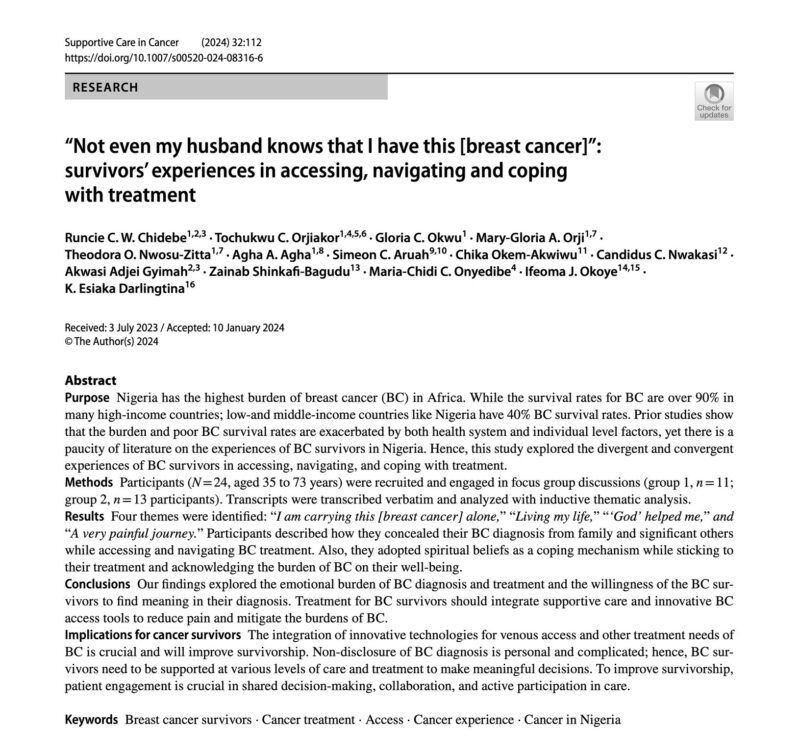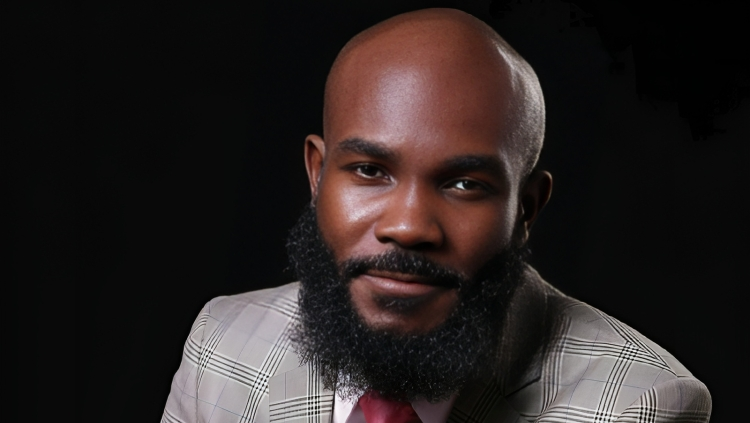Runcie Chidebe, Executive Director at Project PINK BLUE, recently posted on LinkedIn:
“As a patient advocate, this is one of my most important studies. It was a great opportunity for my team and me to explore and uplift the Cancer Patient Voices that are hugely neglected in Africa. I am so excited about this study. Please click here for the full paper or read my summary:
1. In this study, we found that some breast cancer survivors are “carrying their breast cancer alone” and never disclosed their diagnosis to their husbands.
One of the patients said: “It’s traumatizing for me that I lived all my life like a child… I haven’t been able to tell any single member of my family, not even my husband that I have this [breast cancer]. It’s so traumatizing. I am carrying this [breast cancer] all alone. With the little money I have, I cannot even ask for help because if I say it to them, honestly, they will be dead before I die”.
2. In Nigeria, chemotherapy is mostly administered using intravenous (IV) catheters. While IV are beneficial to BC survivors, the process of inserting the IV treatment (i.e., venipuncture) can be discomforting and painful for patients who require recurrent treatments for a longer time. One of the patients said: “I suffer a lot, maybe because I’m big… about nine pricks before I take chemo[therapy]. Nine full pricks! [she exclaims] Every part of my hands [are] vandalized… before I take chemo[therapy]… Because knowing that I’m going to feel pain, I’m going to feel another pain, more pain and still the result is not there [not successful]. In fact, it got to the point of using my leg and still, it was still very difficult. I would say they [doctors] are not patient… and not well trained. Their inpatient level can lead you to develop cancer on its own.”
3. Access to bone scans is limited. A patient said: “When I started chemotherapy, I couldn’t do a bone scan because there was no chemistry [reagents] …for the test and so I had a spread [of cancer] in my bone…Today, I have gone back to the public hospital and that is the only place where I can get radiotherapy. In fact, the doctor that did my surgery came from the UK. He was saying he sends all his patients to South Africa and Ghana”.
4. “Living my life” A patient said: “[breast cancer] has changed my perspective of life and you know, how I see things … it has made me more patient… In fact, it has made life more positive for me. More positive than otherwise”
While we explored the patient experiences, we also offered policy recommendations. I want to specially thank Prof. Kate de Medeiros for her intellectual guidance, and thorough direction. Special thanks to Miami University, Scripps Gerontology Center, MU Department of Sociology and Gerontology, and the Project PINK BLUE team. My co-authors Ifeoma OKOYE, Gloria Chinyere Okwu, Darlingtina Esiaka, PhD, CPG, CPH, Candi N., Zainab Shinkafi-Bagudu, Maria Chidi C Onyedibe and others. Thanks for all your efforts.”

Source: Runcie Chidebe/LinkedIn
